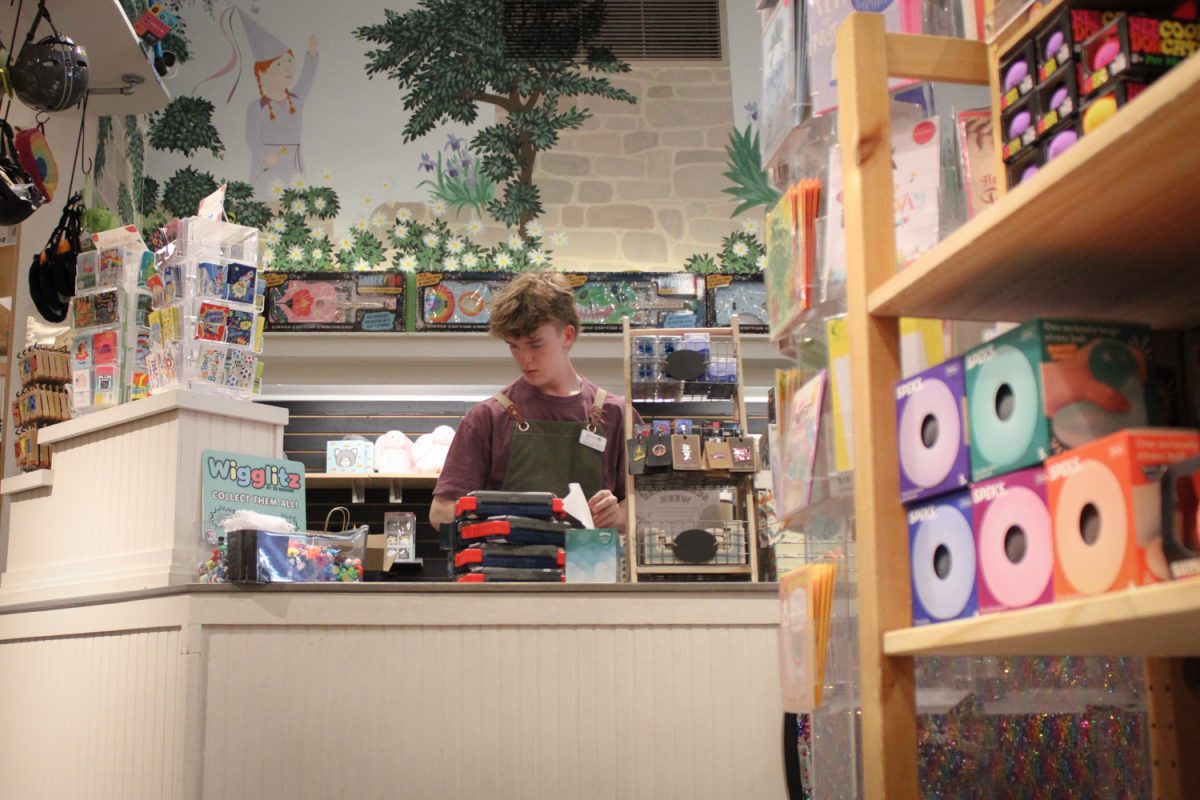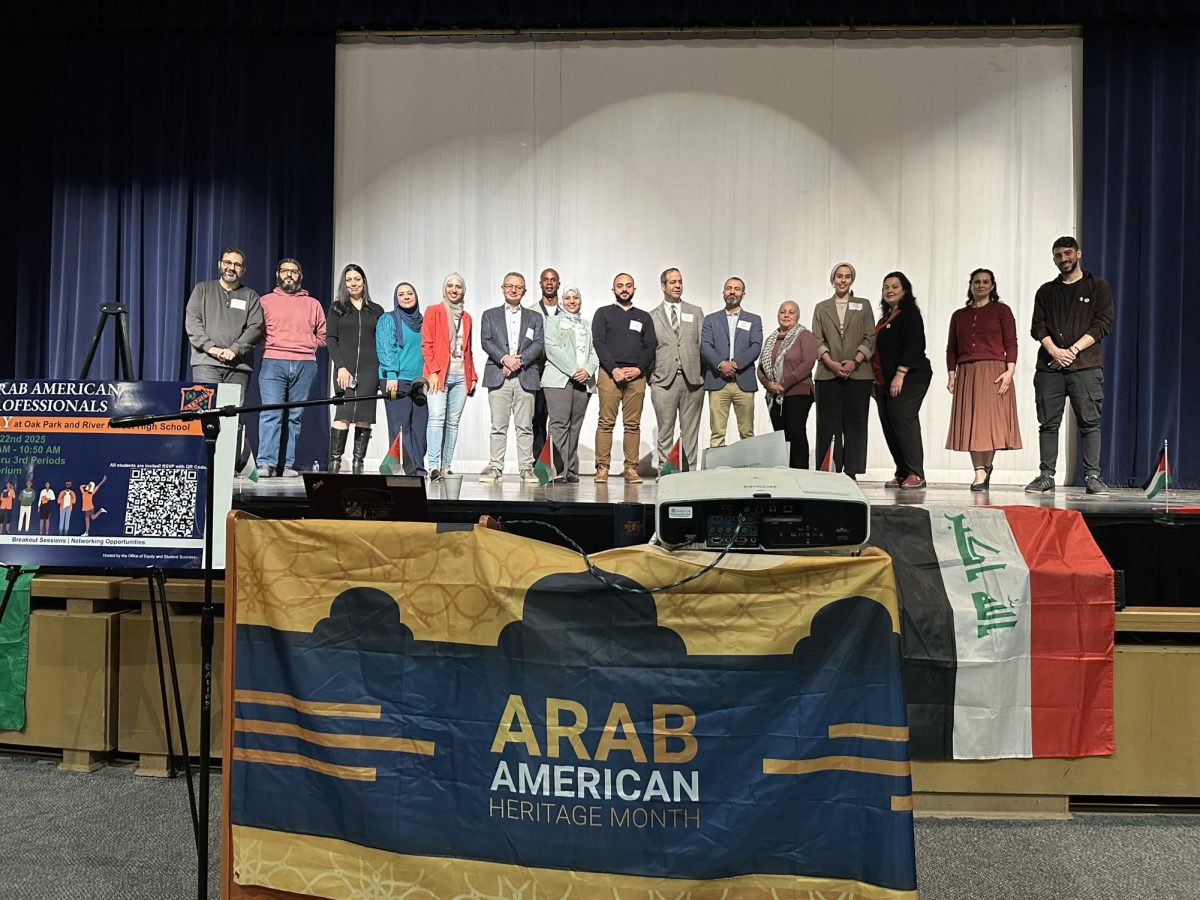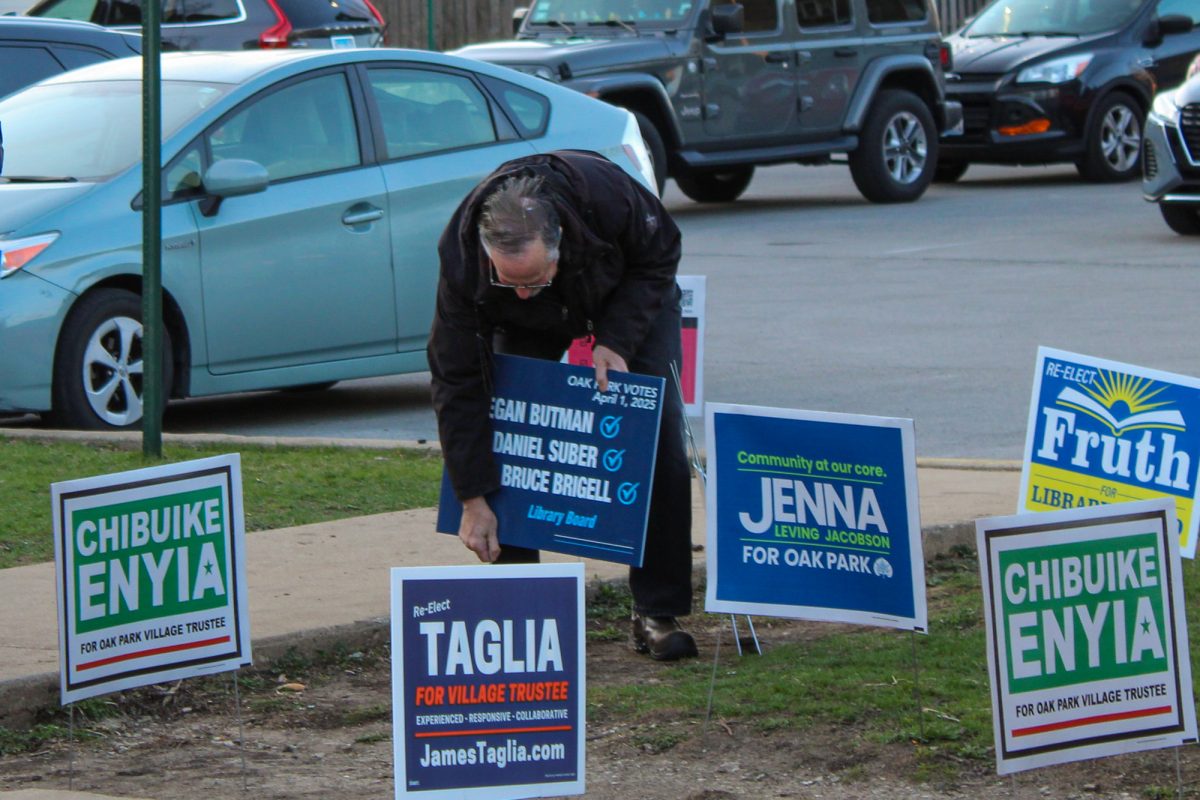With the Illinois primary election right around the corner on March 19, students at Oak Park and River Forest High School are preparing to get out the vote.
Only 57% of youth ages 18 to 34 say they are “extremely likely” to vote in 2024, according to the Center for Information & Research on Civic Learning and Engagement (CIRCLE) at Tufts University.
OPRF students are hoping to boost that number. Junior Sonja Emerson, a member of Students Advocacy For Equity (SAFE), said the organization had a booth set up on Wednesday, Feb. 28 and Thursday, Feb. 29 that gave students the resources to register to vote and stay informed on local candidates.
Wilson Caraballo, a history teacher and co-sponsor of SAFE, said the idea for the booth came from the students. “A good majority of them thought this was really important, especially considering the political climate that we have in the
world,” said Caraballo.
On March 19, voters can cast their ballots for a number of candidates vying to be their party’s nominee for the November elections. Races include the President of the United States, where President Joe Biden and former President Donald Trump are widely predicted to secure their parties’ nominations.
In Illinois’ 7th Congressional District, four challengers are seeking to unseat U.S. Rep. Danny Davis, a Democrat who has held the office since 1997. Running against Davis are Nikhil Bhatia, Kina Collins, Melissa Conyears-Ervin and Kouri Marshall.
On the state level, races include the Illinois House of Representatives, where State Rep. Camille Lilly is running unopposed in the 78th District, and a variety of judicial positions.
Locally, voters will choose nominees for Cook County offices and the Metropolitan Water Reclamation District.
SAFE created and distributed “packets for multiple (local) candidates” for students to “read through and kind of make their own choice, no matter what side of the political spectrum they fall on,” said Caraballo.
Caraballo emphasized the importance of voting in local elections. Students in SAFE “understand that local elections are more important to see direct change and change within the community rather than…the big national elections,” he said.
Maia Zeidman, sponsor of OPRF’s Government & Public Policy Club echoed that idea, saying that once students vote for the first time, they “hopefully see how they can impact the local elections.”
Although in national elections voters are less likely to see the direct impact of their individual votes, in local elections “your vote really does matter when it’s…a vote that might be decided by like 100 votes,” said Emerson.
Zeidman said that the club hopes to “communicate with SAFE in their efforts to help get students active.” They are crafting a slideshow to present to “senior advisories to help kids register.”
If students are taught about voting and taught how to register to vote in school, they are more likely to vote in elections as adults, according to a 2020 CIRCLE finding. The report found that, “Students who had not received encouragement to vote from teachers in high school were more than twice as likely to agree with the statement ‘Voting is a waste of time’ as those who had been encouraged: 26% vs. 12%.”
The members of SAFE and Government & Public Policy Club are hoping to inform students on the importance of voting with hopes of increasing civic engagement in a group that is historically not consistent in their turnout at the ballot box.
“There’s a lot of distrust with the government or thinking like ‘Oh, my vote doesn’t matter…nobody’s representing me anyway,” said Emerson, explaining why young people are less likely to vote than older generations.
However, “the people who are elected now are going to be affecting us [young people] and our children in later years,” said Emerson.
“If you want to make actual change, you need to go out and vote and get the people into office that will make change,” said Caraballo.
You are eligible to vote if you will “be at least 17 years old on or before the date of the next Primary Election (March 19. 2024) and will be at least 18 on or before the date of the next General or Consolidated Election” according to Illinois Online Voter Registration. Register to vote online at ova.elections.il.gov





